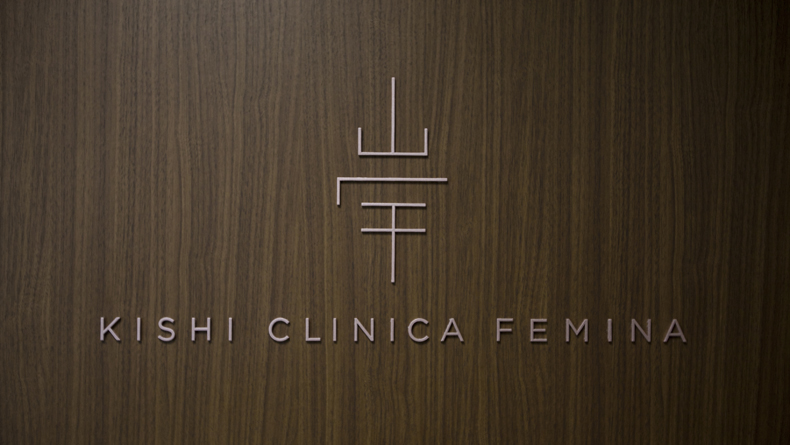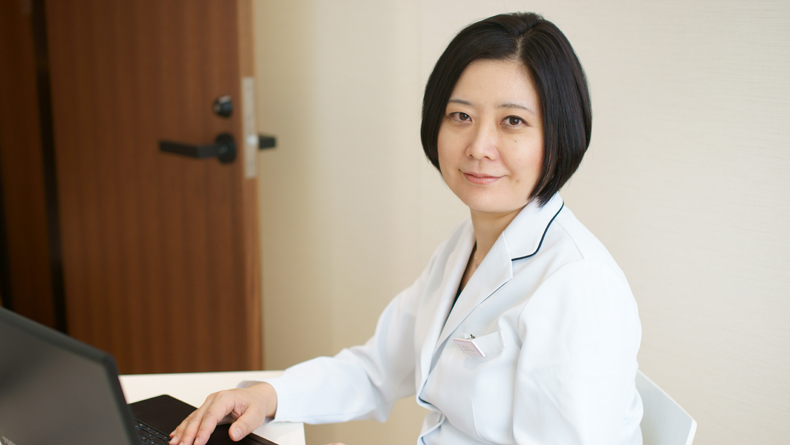Kishi Clinica Femina, Ginza
Opened in April of this year, Kishi Clinica Femina offers personal and prompt treatment to women in a soothing, private and supportive environment. The director of the clinic, Dr. Ikuko Kishi, believes this philosophy is much more effective than the rushed and clinical treatment patients so often receive in Japanese hospitals.
Tokyo-born Dr. Kishi attended the School of Medicine at Keio University—one of Japan’s best medical schools—where she majored in obstetrics and gynecology. Now, as well as being the director of her own Ginza-based clinic, Dr. Kishi is also the director of the department of gynecology at Saiseikai Central Hospital in Minato Ward. After 21 years practicing as a doctor, with experience working at hospitals around Tokyo, Saitama and Chiba prefectures, Dr. Kishi decided to open her clinic to focus on “the now and future for women’s health.” The clinic offers consultations and various women’s health services in both English and Japanese to foreign and Japanese women of all ages (although note that Japanese national insurance is not accepted).
Savvy Tokyo recently spoke to Dr. Kishi about her clinic and the services it offers.
Why did you decide to open Kishi Clinica Femina?
Before I opened this clinic, I only worked at hospitals in Japan. They are always very busy and, as a doctor, you don’t have much time to talk to your patients and devote much care to them. It is really like a conveyor belt! If I want to talk with them for a long time, the next patient would have to wait for a very long time. Japanese hospitals are very rushed, and patients usually can’t get one-to-one care.
Kishi Clinica Femina provides a lot of personal time and privacy for each patient, and the doctors can devote more time to each patient and talk extensively about their health concerns. Each patient gets about 30 minutes to one hour for a consultation, depending on their individual issues.
What services do you offer?
We provide various screenings, including uterine cancer screenings and ovarian cancer screenings; advice and care for those with disorders, such as endometriosis, uterine fibroid conditions, menstrual issues, menopause, ovarian cysts, incontinence, and contraceptive prescriptions; as well as consultations for endoscopic surgery, pelvic organ prolapse, sterility, and second opinions.
How many staff do you have?
At the moment we have one other doctor—who is also the assistant director at Saiseikai Central Hospital’s department of gynecology—one nurse, and four additional staff. We hope to employ more nurses in the future.
What are the benefits of coming to Kishi Clinica Femina?
Importantly, I am a woman so I can understand my female patients. Our network is also a strong point. As I am the director of the gynecology department at Saiseikai hospital—one of the biggest hospitals in Tokyo—as well as the director of this clinic, if you have a serious condition requiring surgery, you can go to the hospital and I can do the operation for you, too. Patients can see the same doctor for a more serious issue, instead of seeing a stranger, and can feel safe and comfortable, as they will already know me. After the operation, they can come back to the clinic and talk with me in a more relaxed atmosphere.
How does your clinic differ from others in Japan?
We can offer privacy, face-to-face consultations, and longer appointments so patients can get the care they deserve and need.
What advice can you give to readers in regards to women’s health?
Many Japanese women are very busy and neglect their health. Sometimes I meet patients in the hospital who have very severe conditions, but said they couldn’t go to the hospital earlier because they were busy.
I recommend every woman should get a health check, including a gynecological check, at least once a year. If there is a problem, women must go to the hospital early and get treatment. In Japan, not enough people get health checks. No one likes hospitals, but here at Kishi Clinica Femina we have tried to make a clinic that people like, feel comfortable and relaxed in, and want to come to.
Is there one mistake that women often make in regards to their health?
When menstruating, I think most women have some sort of pain. But in Japan, most people try to ignore it. I think this way of thinking has to change. Pain is a sign that something is wrong, so I believe it is best to go to the doctor and find the source of the problem early for health control in the future. Women need to better look after themselves for the future.
The Deets
Address: 5F Namiki Dori Nakajima Shoji Bldg., 8-5-6 Ginza, Chuo-ku, Tokyo
Tel: 03-5537-7171
Open: Mon and Thu 6:30-10 p.m.; Wed and Sat 2-5:30 p.m. and 6:30-10 p.m.; Sun and hols 10 a.m.-1:30 p.m. and 2-6 p.m.; closed Tue and Fri; appointment required
URL: http://www.kishiclinicafemina.jp/english/index.html
This content is sponsored by Kishi Clinica Femina.














Leave a Reply